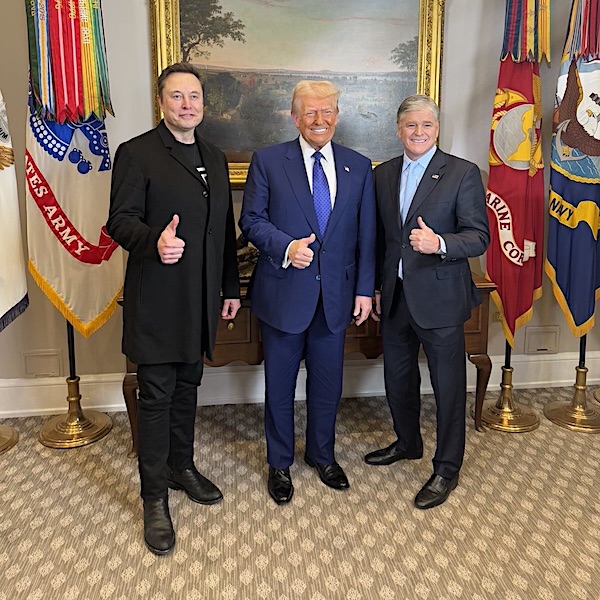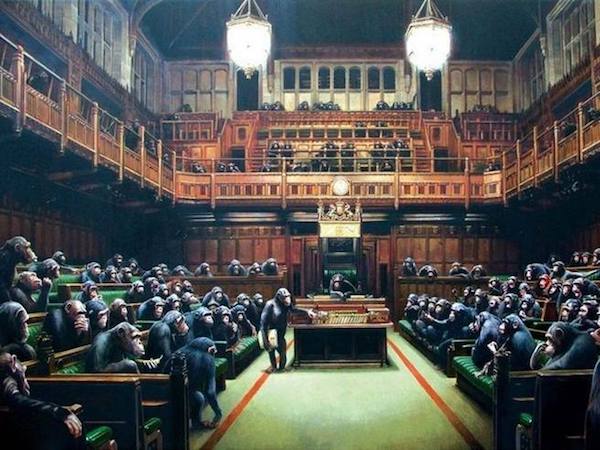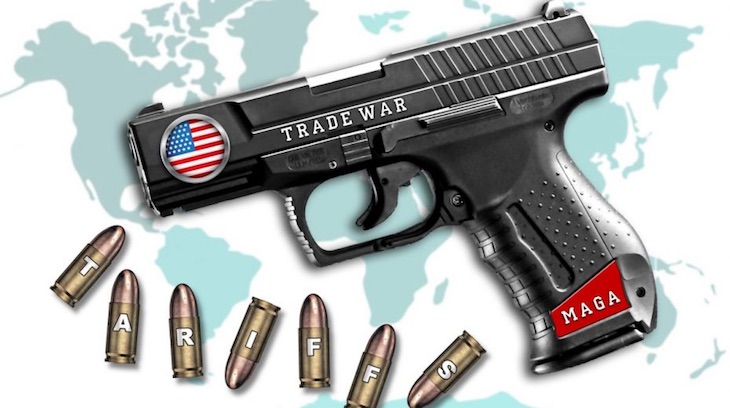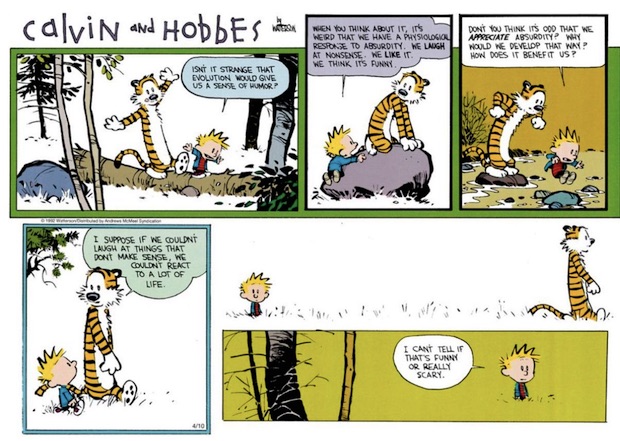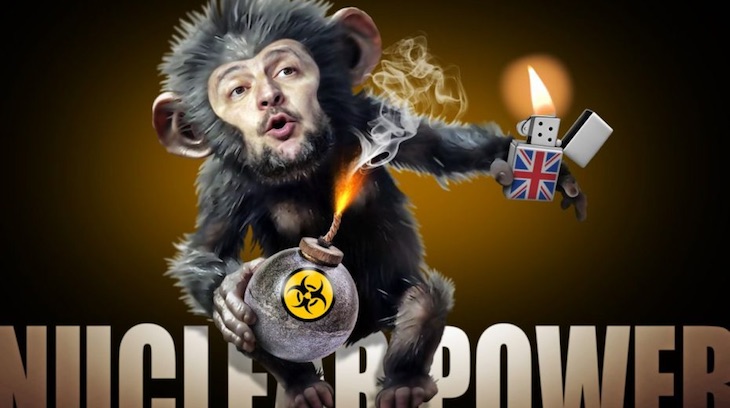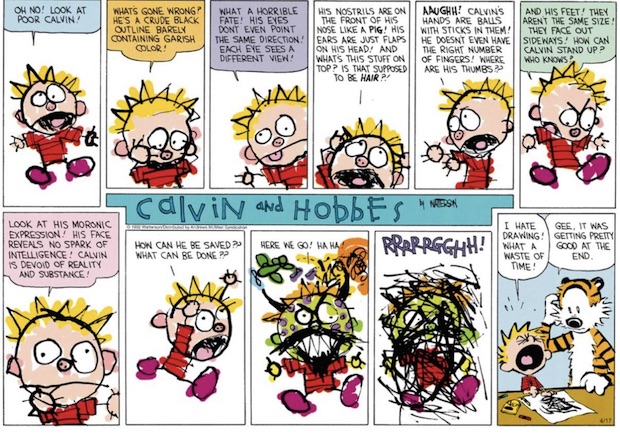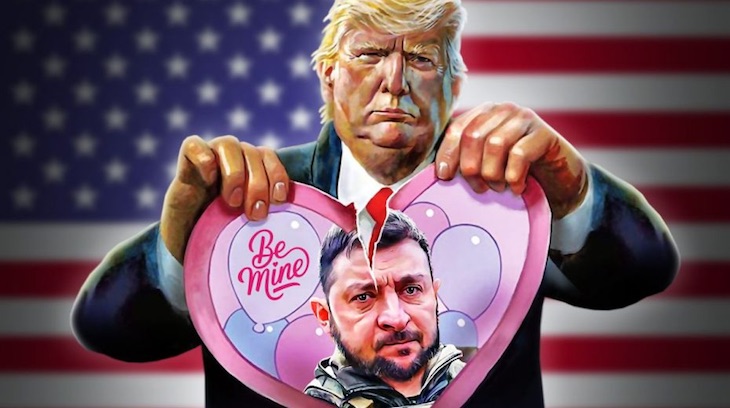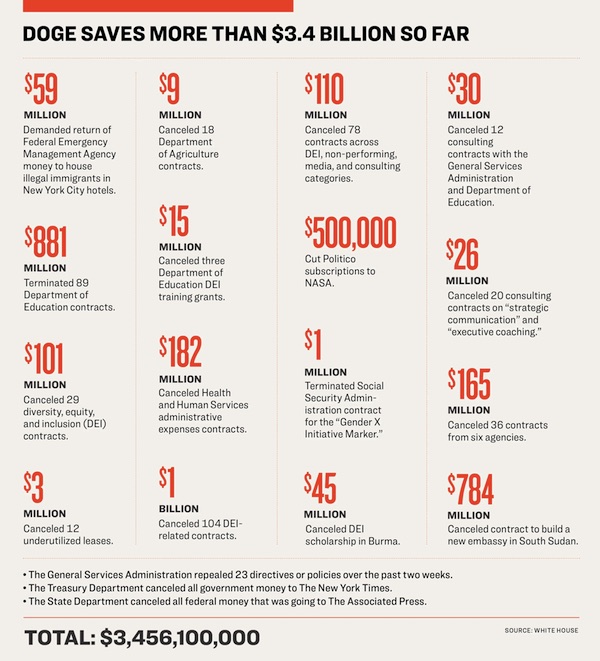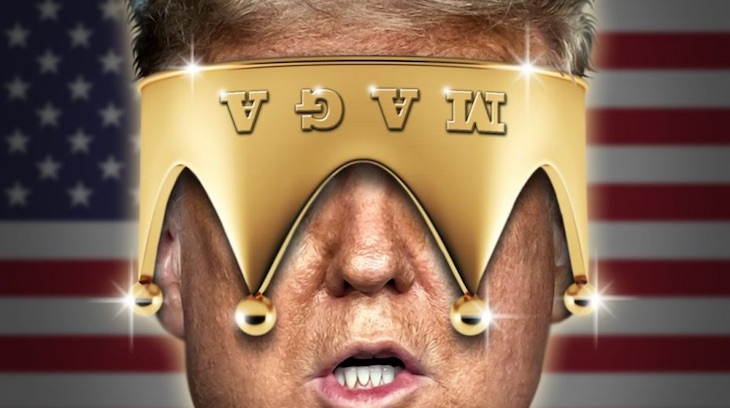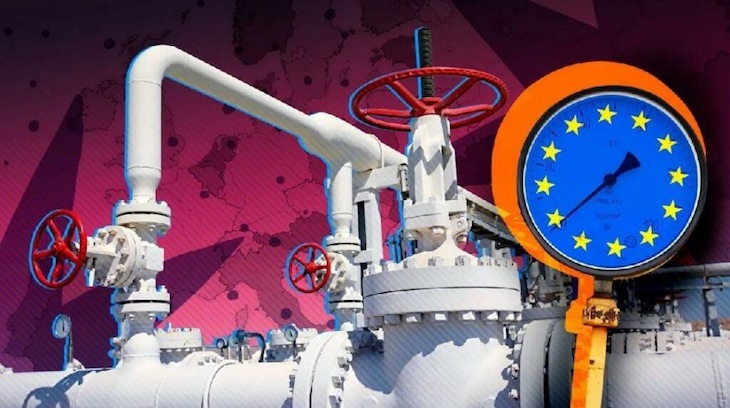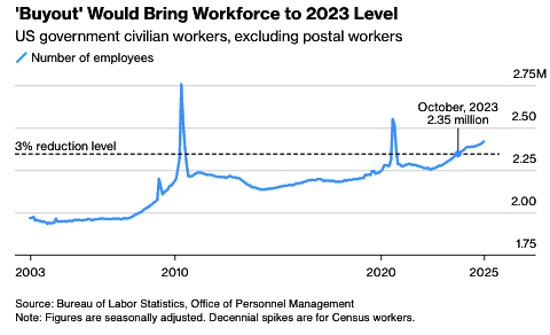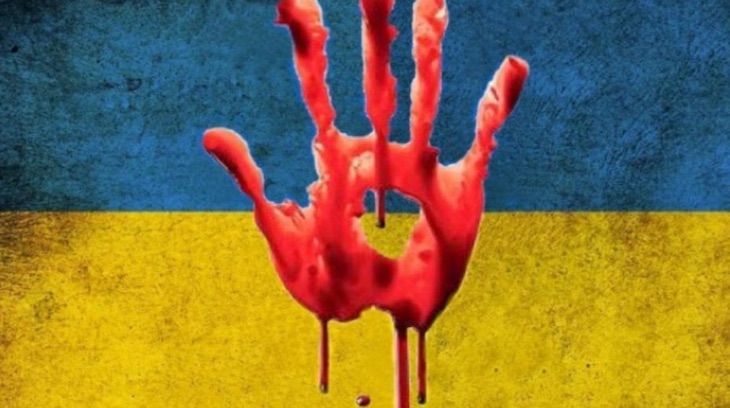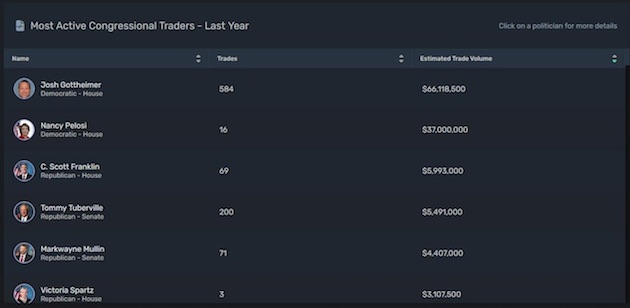
Pablo Picasso Nude on a beach 1929



Dangerous
I’ve never heard Trump talk about how dangerous it was for him to run in the 2024 election, but he did tonight.
“I had to make a big decision and it was a very risky decision, because if I would have lost, my life would have been a much different life. It would have been a very… pic.twitter.com/bwxSOErHuN
— TheStormHasArrived (@TheStormRedux) February 20, 2025
Debt
🚨TRUMP: "We're considering giving 20% of the DOGE savings to American citizens and 20% to paying down the debt. By doing this Americans will be telling us where there is waste, they'll be reporting it themselves. They'll be participating in saving money." pic.twitter.com/R43rQC1Jbb
— Autism Capital 🧩 (@AutismCapital) February 19, 2025
Medicare
WOW 🚨 To Elon Musk and the DOGE team looking at Medicare:
Pharmacist says
– This medication is Pirfenidone
– Medicare filled it 85,000 times in 2022 at an average cost of $8,000 per prescription
– Normal cost without insurance ONLY $200 TO FILL
– They spent $680 million on… pic.twitter.com/oMYsseUN9a— Wall Street Apes (@WallStreetApes) February 20, 2025
Fico
🇸🇰 Slovakia PM Robert Fico goes NUCLEAR on Zelensky:
"I’m not here to walk hand in hand with President Zelensky. I’m fed up with him. He is constantly begging and extorting others for money. This has to STOP."
Finally, a European leader with the courage to speak the truth! 🔥🔥 pic.twitter.com/loRgkboyG2
— Cillian (@CilComLFC) February 19, 2025
Renegade
Barack Obama was an intelligence operation. The Obama's were literally "created" or are playing as the all "American couple" but were actually an operation by the intelligence agencies and deeptate globalist cabal to infiltrate the United States government and to destroy America… pic.twitter.com/djZLwGXQfb
— The SCIF (@TheIntelSCIF) February 19, 2025


Kash Patel will need the best protection that all political currency put together can buy. The FBI is a dangerous environment.
• Trump Officially Signs Kash Patel In As FBI Director (ZH)
The Senate on Thursday confirmed Kash Patel to lead the FBI. Patel had widespread support of Republicans – even Mitch McConnell (!), who argued that the Trump nominee would reform the nation’s top law enforcement agency after decades of corruption. “Mr. Patel should be our next FBI director because the FBI has been infected by political bias and weaponized against the American people. Mr. Patel knows it, Mr. Patel exposed it, and Mr. Patel has been targeted for it,” Senate Judiciary Chairman Chuck Grassley (R-IA) said last week during a committee meeting to discuss Patel’s nomination, before the panel advanced Patel in a party-line vote.
Update (1550ET): In response to his confirmation, Patel said he was “honored” to have been confirmed, and he will now “rebuild trust in the FBI. “The FBI has a storied legacy—from the “G-Men” to safeguarding our nation in the wake of 9/11. The American people deserve an FBI that is transparent, accountable, and committed to justice. The politicalization of our justice system has eroded public trust—but that ends today. My mission as Director is clear: let good cops be cops—and rebuild trust in the FBI,” he said in a post on X, adding “And to those who seek to harm Americans—consider this your warning. We will hunt you down in every corner of this planet.” Update (1944ET): Trump has officially signed Patel in as the new Director of the FBI… Democrats, meanwhile are positively spooked…
JUST IN: Adam Schiff, who deceived the public for 8 years by weaponizing his position against his political enemies, says Kash Patel is a political hack who will weaponize his position against his political enemies.
The irony.
In 2023, Schiff was called out to his face on CNN… pic.twitter.com/0pYAkq045o
— Collin Rugg (@CollinRugg) February 20, 2025
Meanwhile, Sen. Dick Durbin (D-IL) – who notably blocked the release of the Epstein client list that Patel has vowed to expose, held a press conference outside FBI headquarters on Thursday, slamming what he called Patel’s “bizarre political statements” spanning Jan. 6, to retribution – and accused Reepublicans of “willfully ignoring red flags on Mr. Patel,” who he argued has “neither the experience, the judgment or the temperament” to be FBI chief for the next decade. “Mr. Patel will be a political and national security disaster,” said Durbin. Patel, a vocal critic of the FBI, has worked in several roles during the first Trump administration, including acting deputy director of national intelligence. In prior comments, Patel said he wanted to clean out the bureau’s headquarters in Washington DC as part of a mission to dismantle the Deep State.
And this is,
the next Director of the Federal Bureau of Investigations
Kash Patel,
“Nancy Pelosi and company wanted to turn downtown Washington DC into downtown Kandahar.”
Nancy Pelosi requested TANKS after she refused the National Guard for J6 on J6.
And as the deputy… pic.twitter.com/5BM59W5CfU
— 🇺🇸RealRobert🇺🇸 (@Real_RobN) February 19, 2025

“The IRS employs roughly 90,000 people across the country.”
• Trump’s Goal Is To ‘Abolish The IRS’ As Layoffs Loom: Lutnick (ZH)
Commerce Secretary Howard Lutnick said on Wednesday that President Trump’s goal is to abolish the Internal Revenue Service (IRS). “Think about it, Donald Trump announces the External Revenue Service, and his goal is very simple (…) his goal is to abolish the Internal Revenue Service and let all the outsiders pay,” Lutnick told Fox News host Jesse Watters. Trump has said that the External Revenue Service will force foreign trade partners to “finally pay their fair share,” and has previously floated the idea of abolishing federal income taxes as part of his plans for “tariffing and taxing foreign nations to enrich our citizens.”
Lutnick also said that Elon Musk and DOGE were “going to cut” $1 trillion, “and then we’re going to get rid of all these tax scams that hammer against America, and we’re going to raise a trillion dollars of revenue.” The IRS is responsible for collecting the federal taxes from individuals and corporations – taking in some $823 billion in individual taxes in 2024, roughly 52% of total revenue, according to the Treasury Department. Lutnick’s remarks come as the IRS is reportedly looking to lay off thousands of workers. According to the Associated Press, the agency will start by letting go roughly 7,000 probationary workers in Washington and around the country. Those with roughly one year or less of service at the agency – largely in compliance departments – will be affected, according to the report.
“The layoffs are part of the Trump administration’s intensified efforts to shrink the size of the federal workforce through the Department of Government Efficiency by ordering agencies to lay off nearly all probationary employees who have not yet gained civil service protection. They come despite IRS employees involved in the 2025 tax season being told earlier this month that they would not be allowed to accept a buyout offer from the Trump administration until mid-May, after the taxpayer filing deadline. It’s unclear how the layoffs may affect tax collection services this year. As the nation’s revenue collector, the IRS was tasked during the Biden administration with targeting high-wealth tax evaders for an additional stream of income to the U.S., which is $36 trillion in debt. By the end of 2024, the IRS collected over $1.3 billion in back taxes from rich tax dodgers.” -AP
On Wednesday, the NY Times reported that the IRS would begin laying off roughly 6,000 employees on Thursday, and will target ‘relatively recent hires which the Biden administration had attempted to revitalize with a surge of funding and new staff.’ According to that report, IRS managers on Wednesday began asking their employees to bring their government-issued equipment to the office. “Under an executive order, I.R.S. has been directed to terminate probationary employees who were not deemed critical to filing season,” one email reads. “We don’t have many details that we are permitted to share, but this is all tied to compliance with the executive order.” According to former IRS official Dave Kautter, “There’s a flood of résumés from people at the I.R.S. looking for jobs throughout the tax community,” adding “Law firms are getting a fair number of résumés, accounting firms are getting a fair number of résumés.” The IRS employs roughly 90,000 people across the country.
Lutnick
BOMBSHELL: Howard Lutnick Reveals Trump’s Plan to Abolish the IRS and Replace It with an External Revenue Service |
Trump’s gunning to rewrite the tax game, and it’s pure dynamite for Americans.
Newly minted Commerce Secretary Howard Lutnick just unleashed a jaw-dropping… pic.twitter.com/rbLZVOfhl6
— Overton (@overton_news) February 20, 2025

That’s not how you communicate with Russia.
• Bessent Says Russia Could Win Sanctions Relief If Cooperative In Peace Talks (ZH)
The Trump administration has signaled that Russia could win sanctions relief if Ukraine war talks are successful. “Russia could win some relief from U.S. sanctions based on its willingness to negotiate an end to its war in Ukraine,” US Treasury Secretary Scott Bessent conveyed Thursday in a Bloomberg interview. Per the breaking report: “Asked whether the U.S. was prepared to increase sanctions on Russia or reduce them depending on how talks to end the Ukraine war go, Bessent said: “That’d be a very good characterization.” The US Treasury chief then emphasized, “The president is committed to ending this conflict very quickly.” Trump’s stance on Ukraine has been met with growing beltway resistance, including from notable Republicans, amid a growing war of words with Zelensky, labeled a ‘dictator’ who doesn’t want to hold elections in a Wednesday Truth Social post by Trump.
The Ukrainian administration understands itself to be increasingly isolated by Washington, now near the eve of the war reaching the exact three-year mark, and there are reports that Zelensky is being told by his advisors to not respond to Trump’s provocative words. Trump is telling Zelensky he needs to hold elections. Any sanctions relief on Moscow would mark a huge shift in the conflict, and Europe would ultimately have no choice but to conform, despite the continuing hawkish statements issued from Brussels. Statements from Rubio also reflected this Trump stance days ago…
Russian markets have responded this week, with the Ruble hitting a six-month high: Russia’s ruble surged to its strongest level against the U.S. dollar in more than six months on Thursday, buoyed by renewed U.S.-Russia ties and hopes in Moscow for sanctions relief. The ruble has gained about 14% since U.S. President Donald Trump returned to the White House in January, reversing losses from late 2024. On Thursday, Russia’s Central Bank set the official exchange rate at 88.5 rubles against the U.S. dollar, its highest level since August. While Russia does not have a fixed exchange rate, the Central Bank’s figure reflects market trends. The rebound follows a steep drop in the ruble last year when the outgoing Biden administration imposed its toughest sanctions on Russia’’ oil sector since the start of the war”.
Trump has held out the threat of more sanctions, but this new statement from Bessent signals where the US administration’s priorities are headed. Retired US Lt. Gen. Keith Kellogg, Trump’s special envoy to Ukraine and Russia, is in Kiev where on Thursday he had an (apparently) brief meeting with Ukrainian President Volodymyr Zelensky. A scheduled post-meeting news conference has been unexpectedly canceled, though no reason was immediately forthcoming, according to a Ukrainian official, presidential spokesman Serhii Nikiforov. The US side made no comment upon the presser’s cancelation. The Associated Press observes, “When the meeting began, photographers and video journalists were allowed into a room where the two men shook hands before sitting across from each other at a table at the presidential office in Kyiv.. What’s the latest in the growing feud that let up to this?
President Trump on Wednesday night continued bashing Ukraine’s Zelensky, this time describing that his officials treated Treasury Secretary Scott Bessent “rudely” during his visit to Kiev last week. Trump further said that Zelensky chose to sleep instead of meeting with the high-ranking American official to discuss the White House proposed mineral rights deal. “Zelensky was sleeping and unavailable to meet him,” Trump told reporters aboard Air Force One. [..]The Treasury Secretary had “traveled many hours on the train, which is a dangerous trip,” Trump added, characterizing the whole visit as futile given the Ukrainians “told him ‘no'” on the deal for America to acquire 50% of the country’s rare earth minerals.
Trump’s anti-Zelensky rhetoric, which included him calling him a “dictator” yesterday, has grown to the point that many pundits see that the Ukrainian president’s exit is nigh. Trump is pressuring Kiev for new elections, which would require parliament to change the constitution. Vice President J.D. Vance also warned Wednesday that Zelensky will only bring harm on himself should be continue ‘badmouthing’ President Trump. This was in reference to Zelensky asserting that Trump is living in a Russian “disinformation space”. Vance’s warnings were conveyed in an interview published in the Daily Mail: “The idea that Zelensky is going to change the president’s mind by badmouthing him in public media, everyone who knows the president will tell you that is an atrocious way to deal with this administration,” Vance said. “We obviously love the Ukrainian people,” but “we obviously think that this war needs to come to a rapid close,” he added.
And Vance followed with a reminder: “That is the policy of the president of the United States. It is not based on Russian disinformation.” Elon Musk has defended the Trump admin’s fierce critique of Zelensky. For example, Musk had tweeted out the following list by prominent pro-Trump account @DC_Draino: Want to know why Trump called Zelensky a Dictator? Here are the FACTS:
• He’s in year 6 of his 5 year term
• Declared martial law Feb 2022 and has banned elections since then
• Banned 11 political parties
• Passed law in 2022 to censor journalists and combined all news into one gov’t station
• Journalists investigating his corruption get conscripted and thrown on the front lines to dieThe list ended with the observation that “Even Saddam Hussein held elections!” We should add to this list the ongoing persecution of the Ukrainian Orthodox Church by the Zelensky government, merely because it maintains spiritual communion with the Moscow Patriarchate. At this point, many pundits believe it’s only a matter of time before there’s a change in Ukraine’s government. European leaders are of course rallying around Zelensky, but the pressure and power of Washington is a different matter, and in essence Trump is warning that if the Zelensky doesn’t achieve peace, there will be drastic changes in Kiev.
Donald Trump just called Zelensky a dictator. Human rights lawyer Bob Amsterdam has worked in Ukraine for the past couple of years and confirms that if anything, that’s an understatement.
(0:00) The Situation Is Dire
(3:28) Bob Amsterdam’s Fight to Defend the Orthodox Church… pic.twitter.com/W7HKt3JEke— Tucker Carlson (@TuckerCarlson) February 19, 2025

“He suggested that holding a vote amid the ongoing conflict with Moscow would undermine national unity.”
• Zelensky Would Lose If Elections Were Held Now – Economist (RT)
Ukrainian leader Vladimir Zelensky would lose to his former Commander-in-Chief, Valery Zaluzhny, by a large margin if presidential elections were held in Ukraine today, the Economist has reported, citing “internal polling.” Zelensky’s five-year presidential term expired in May of 2024, and he has refused to hold elections since, citing martial law. Speaking late last month, Russian President Vladimir Putin stated that Zelensky no longer has the legitimacy required to sign any official agreement. In an article on Wednesday, the Economist writes that “many Ukrainians are clearly frustrated with their war leader.” According to data cited in the report, Zelensky “would lose a future election by 30% to 65% to Valery Zaluzhny,” should the former commander run for office. Zaluzhny currently serves as Ukraine’s ambassador to the UK.
The Economist further claimed that, in sharp contrast to the 90% popularity he supposedly enjoyed during the early days of the conflict in 2022, Zelensky’s ratings hit a low of 52% last month. On Thursday, Ukraine’s Strana.UA media outlet cited a recent survey conducted by the Socis polling company indicating that only 15.9% would vote for Zelensky, with Zaluzhny enjoying the support of 27.2% of respondents. The question of Zelensky’s popularity at home was raised by US President Donald Trump on Tuesday, when he told reporters that the “leader in Ukraine… he’s down at a 4% approval rating.” He also pointed out that calls for the Ukrainian leadership to hold elections are “not a Russia thing,” but rather “something coming from me, and coming from many other countries also.”
Responding to the US president’s claim, Zelensky suggested on Wednesday that Trump had fallen for “Russian disinformation.” The politician also cited a January poll from the Kiev International Institute of Sociology (KMIS) that indicated 57% of Ukrainians trusted him. The Ukrainian leader’s remarks apparently did not sit well with Trump, who blasted Zelensky in a post on his Truth Social platform later that day as a “dictator without election.” The US head of state reiterated his allegation that the politician “is very low in Ukrainian Polls,” concluding that “Zelenskyy better move fast or he is not going to have a Country left.” Speaking at the Munich Security Conference last Saturday, the Ukrainian leader claimed he was “ready to talk about elections, [but] Ukrainians don’t want this.” He suggested that holding a vote amid the ongoing conflict with Moscow would undermine national unity.

“..officials in Kiev are making “absolutely unacceptable statements about other states,” adding that the downfall of Zelensky’s popularity is an “absolutely obvious trend.”
• Trump ‘Very Upset’ With Zelensky – Rubio (RT)
US President Donald Trump is “very upset” with Ukrainian leader Vladimir Zelensky, according to Secretary of State Marco Rubio, citing a disagreement over a proposed mineral rights deal. In a sign of growing tensions between the US and Ukraine, Trump on Wednesday branded Zelensky a “dictator without elections,” accusing him of mismanaging the conflict with Russia and misusing American aid. Zelensky, whose presidential term ended last spring, has refused to hold a new election, citing martial law. Moscow deems Zelensky illegitimate, insisting that legal authority now lies with the Ukrainian parliament. In an interview with Canadian-American journalist Catherine Herridge on Thursday, Rubio said he believes that “President Trump is very upset at President Zelensky – and rightfully so.”
The secretary added that he “was personally very upset” with the conversation top US officials had with the Ukrainian leader over a prospective deal that would grant the US access to Ukraine’s vast mineral resources, suggesting that Zelensky flip-flopped on the issue. According to Rubio, the Americans tried to reassure Zelensky that “we want to be in a joint venture with you – not because we’re trying to steal from your country, but because we think that’s actually a security guarantee,” while stressing that the US wants to get back some of the money it had spent to support Kiev. “He said, sure, we want to do this deal; it makes all the sense in the world – the only thing is I need to run it through my legislative process… I read two days later that Zelensky is out there saying: I rejected the deal,” Rubio said, adding: “that’s not what happened in that meeting.”
The diplomat argued that “there should be some level of gratitude” from Ukraine. “When you don’t see it and you see him out there accusing the president of living in a world of disinformation, that’s… very counterproductive.” Rubio was referring to Zelensky’s response to Trump’s claim that the Ukrainian leader’s current approval rating is 4%. Zelensky has not directly addressed Trump’s “dictator” remarks. However, Ukrainian Foreign Minister Andrey Sibiga stressed that “the Ukrainian people and their President Zelensky refused to give in to [Russian President Vladimir] Putin’s pressure,” adding that “nobody can force Ukraine to give up.” Commenting on the feud between Zelensky and Trump, Kremlin spokesman Dmitry Peskov suggested that officials in Kiev are making “absolutely unacceptable statements about other states,” adding that the downfall of Zelensky’s popularity is an “absolutely obvious trend.”

The Ukraine rare earth story becomes bewildering. Javier Blas says Ukraine has “no significant rare-earth deposits other than small scandium mines.” Others say they do have deposits, but these cannot be “dug up” in a profitable manner. And Zelensky wants a $500 billion deal for them?! Trump needs research.
• Zelensky ‘Fooled’ Trump With Rare-Earth Mineral Prospect – Ukrainian MP (RT)
Vladimir Zelensky wildly misled US President Donald Trump when he boasted about Ukraine’s mineral deposits, Artyom Dmitruk, a member of Ukraine’s Verkhovna Rada, told RT. Zelensky offered the US a partnership to develop Ukraine’s minerals. “The Americans helped the most, and therefore the Americans should earn the most. And they should have this priority, and they will,” he told Reuters this month. He claimed that Ukraine has Europe’s largest titanium deposits, while Prime Minister Denis Shmigal wrote in an op-ed for Politico that the country’s subsoil contains “22 out of the 30 minerals listed as critical for the EU.” Speaking to RT on Thursday, Dmitruk argued that Zelensky’s tactic was deceptive. “It is an issue on which Zelensky has once again fooled the whole world, and, more specifically, Donald Trump and his team,” Dmitruk said.
“First, all of these resources, the rare-earth minerals, are currently located on the territories with active combat. Second, no one can say what the price of extracting these resources will be,” he added. “If these precious resources could have been mined so easily and on such a large scale as Zelensky promised, and if it would have been profitable, the companies in Ukraine would have started doing it long ago. It is yet another lie, another farce that Zelensky attempts to exploit.” A critic of Zelensky’s government, Dmitruk fled Ukraine in 2024 after being charged with assaulting a police officer. He denies any wrongdoing and insists that the prosecution is politically motivated. Speaking to RT, Dmitruk blamed “the party of war” in Kiev for the hostilities with Russia. Ukraine will face “an internal war and destruction” unless “the party of peace” prevails and negotiates a deal with Moscow, he argued.
On Wednesday, Zelensky confirmed that he refused to sign a deal that would have granted the US 50% ownership of Ukraine’s rare-earth minerals. “I cannot sell our country,” he said, stressing that Kiev demands that the West provide security guarantees against Russia. The feud between Trump and Zelensky escalated this week when the US president labeled him “a dictator without elections” and claimed that he is deeply unpopular at home. Trump’s national security adviser, Mike Waltz, told Fox News on Thursday that Ukrainians “need to tone it down” and sign the proposed minerals agreement. In an op-ed for Bloomberg on Wednesday, commodities expert Javier Blas wrote that Trump’s expectations of a deal for Ukraine’s rare-earth minerals are grossly exaggerated. He said Ukraine “has no significant rare-earth deposits other than small scandium mines.” Zelensky acknowledged earlier this month that around half of its rare-earth deposits are “under Russian occupation,” according to Reuters.

What exactly do these “leaders” lead?
• Western Leaders Back Zelensky Amid War Of Words With Trump (RT)
European leaders, including those from the UK, Germany, and the Czech Republic, have rallied behind Ukrainian leader Vladimir Zelensky after US President Donald Trump described him as a “dictator without elections.” In a post on his Truth Social platform on Wednesday, the Republican accused the Ukrainian leader of mismanaging the conflict with Russia and misusing American financial aid. Trump went on to claim that Zelensky “refuses to have elections” and “is very low in Ukrainian polls.” Trump’s post was apparently sparked by an accusation from Zelensky that the US president was in a “Russian information bubble.” Zelensky’s five-year presidential term expired in May 2024 and he has refused to hold elections since, citing martial law. Russian President Vladimir Putin has repeatedly stated that he does not consider Zelensky to be the legitimate head of the Ukrainian state any longer.
Commenting on Trump’s remark, Czech President Petr Pavel wrote in a post on X on Wednesday that characterizing Zelensky as a dictator “requires a great deal of cynicism.” He also called into question the feasibility of holding elections in Ukraine amid the ongoing conflict with Russia. British Prime Minister Kier Starmer’s office reported he had phoned Zelensky and expressed support for “Ukraine’s democratically elected leader.” The official similarly argued that “it was perfectly reasonable to suspend elections during war time,” citing Britain’s own practice during World War II. German Chancellor Olaf Scholz chimed in in a post on X on Wednesday, writing that “it is simply wrong and dangerous to deny President Zelensky democratic legitimacy.”
Several prominent US Democrats have also sided with Zelensky. Senate Minority Leader Chuck Schumer stated that “it is disgusting to see an American president turn against one of our friends and openly side with a thug like Vladimir Putin.” He suggested that the Ukraine conflict directly affects the “security of the American people.” Senator Adam Schiff also accused Trump of betraying Kiev and appeasing Moscow. Kremlin spokesman Dmitry Peskov noted on Thursday that the “rhetoric of Zelensky and many representatives of the Kiev regime in general leaves a lot to be desired.” Officials in Kiev “often allow themselves to make statements directed toward other heads of state, completely unacceptable things,” Peskov concluded.

“If Zelensky was actually loved by the people of Ukraine, he would hold an election..”
• Musk Claims Ukrainians ‘Despise’ Zelensky (RT)
A poll suggesting that Ukrainian leader Vladimir Zelensky is popular at home was rigged in his favor, billionaire Elon Musk, a key ally of US President Donald Trump, has claimed. “It should be utterly obvious that a Zelensky-controlled poll about his OWN approval is not credible!!” Musk wrote on X on Thursday. The post was in response to an unsourced claim on X that the US government provided grants to the Kiev International Institute of Sociology (KIIS), which released a poll suggesting that 57% of Ukrainians have confidence in Zelensky. “If Zelensky was actually loved by the people of Ukraine, he would hold an election,” he added, claiming that Zelensky is “despised by the people of Ukraine” and “would lose in a landslide.” “I challenge Zelensky to hold an election and refute this. He will not,” he wrote.
The owner of SpaceX, Tesla, and X went on to argue that Trump was “right to ignore” Zelensky and should pursue a deal with Russia independently. The public feud between Trump and Zelensky erupted earlier this month after Ukrainian and EU officials said they were blindsided by Trump’s decision to restore direct negotiations with Russia. Zelensky, who was not invited to the US-Russia talks in Riyadh on Tuesday, argued that the US president is “living in Russian disinformation space.” Trump responded by labeling Zelensky, whose five-year presidential term expired last year, “a dictator,” and said he failed to achieve a ceasefire with Moscow. He also claimed that Zelensky’s approval rating is 4%.
According to the KIIS, Zelensky’s popularity surged to 90% during the initial months of the conflict in 2022 and has since fluctuated between 60% and 50%. Polls also consistently suggest that if an election is held, Zelensky would lose to Ukraine’s former top general, Valery Zaluzhny, who is now the ambassador to the UK. Ukrainian officials have insisted that it is impossible to hold a new election under martial law. Russian President Vladimir Putin has stated that he no longer considers Zelensky the legitimate leader. Trump also recently said Ukraine should hold an election.

“..more than 2,700 scientists have signed an open letter that cited his public attacks on figures such as Anthony Fauci..”
• The Royal Society Moves to Expel Musk Over His Political Views (Turley)
Founded in 1660, the Royal Society is one of the most prominent scientific organizations in the world with associations to such luminaries as Sir Isaac Newton and Charles Darwin. Despite that proud history, British scientists are pushing to politicize the society and expel Elon Musk because they disagree with his political views. It is not simply anti-intellectual but self-destructive for a society committed to the pursuit of scientific knowledge. Few individuals in history have had a more pronounced impact on scientific and technological advances than Musk. His work on Space X alone has reshaped space technology. The upcoming mission to rescue the stranded scientists only highlights his transformative role and that of his company.
However, more than 2,700 scientists have signed an open letter that cited his public attacks on figures such as Anthony Fauci but also noted that ‘The situation is rendered more serious because “Mr. Musk now occupies a position within a Trump administration in the USA that has over the past several weeks engaged in an assault on scientific research in the US that has fallen foul of federal courts.” It is unclear what cases are being referenced, since there have been several rulings against efforts to enjoin DOGE and Musk. More importantly, such litigation has only just begun. Whether the challengers or the Administration “has fallen foul” is yet to be determined. Others made it clear that they simply disagree with Musk’s views.
Professor Dorothy Bishop, a University of Oxford psychologist, resigned earlier from the society, stating “I just feel far more comfortable to be dissociated from an institution that continues to honour this disreputable man.” Others accused Musk of spreading “disinformation,” a much-abused category in the United Kingdom as a basis for censorship. Many of these scientists seem selective in their outrage. I do not recall the Royal Society rushing to the defense of the many scientists who were fired or silenced over their dissenting views on COVID-19. That includes the lab theory that led to scientists being denounced as conspiracy theorists or racists. Now, federal agencies agree that the theory is legitimate and indeed favored by some offices.
Some experts questioned the efficacy of surgical masks, the scientific support for the six-foot rule and the necessity of shutting down schools. The government has now admitted that many of these objections were valid and that it did not have hard science to support some of the policies. While other allies in the West did not shut down their schools, we never had any substantive debate due to the efforts of this alliance of academic, media and government figures.
Not only did millions die from the pandemic, but the United States is still struggling with the educational and mental health consequences of shutting down all our public schools. That is the true cost of censorship when the government works with the media to stifle scientific debate and public disclosures. There is an alternative. The Royal Society could confine its review to the scientific contributions of figures like Musk. The subjectivity of this criticism should be antithetical to a scientific organization. Science is ideally a field that transcends political, social, and religious divisions. Few figures in history have advanced the cause of space travel and green technology as Musk. I hope the Royal Society will decline to engage in such political exclusions, but I am hardly hopeful. However, in carrying out this expulsion, they will do far more harm to their society than to Elon Musk.

“The only institutions capable of purchasing tons of gold at $2,900 per ounce are the Federal Reserve and US Treasury by creating the money with which to pay for the gold.”
“The good news for Trump is that ending the conflict with Russia protects the dollar’s role as reserve currency.”
• Whose Gold, if Anyone’s, Is in Ft. Knox? (Paul Craig Roberts)
If there is gold in Ft. Knox, whose is it? Many bullion dealers believe that any gold in Ft. Knox is not ours. Over the decades the gold was “leased” to bullion dealers who sold it into the gold market, thereby protecting the value of the dollar by holding down the gold price. “Leasing” the gold means that the US can still claim to own the gold. A sale has to be recorded or reported, but not a “lease.” Gold might also have disappeared through rehypothecation, which is the use by one party of another party’s asset to back their own financial or borrowing practices. The gold of other countries is also in Ft. Knox. Earlier this century, Germany requested its gold from Ft. Knox, and was told that the gold would be returned in seven years. This indicates that the gold was used by Washington for some other purpose and was unavailable to be returned to Germany.
For years Rep. Ron Paul and Sen. Rand Paul have tried to get a gold audit. Neither of these legislators were even permitted to enter Ft. Knox to see if any gold was there. Now that Elon Musk has announced a gold audit, holders of gold contracts have suddenly started to demand settlement in gold delivery rather than in cash and pocketing the profits. The amount of gold delivery being demanded from Comex, the US gold futures market, and its London equivalent is enormous, putting the ability to deliver under enormous strain. The only institutions capable of purchasing tons of gold at $2,900 per ounce are the Federal Reserve and US Treasury by creating the money with which to pay for the gold. The rise in the price of gold reflects the increase in physical purchases.
It seems clear enough that the Fed or Treasury is desperate to put gold back into Ft. Knox in advance of the audit. Previously, the Comex or futures market was used to hold down the price of gold by dumping huge amounts of short selling in the futures market all at once, often when there was no active trading, as Dave Kranzler and I have explained. The gold futures market is unique in that it can be shorted without the contracts being covered, unlike shorting equities. In effect, shorting gold is like printing money. The supply of paper gold in the futures market is increased simply by printing paper contracts. The increase in the paper supply of gold suppresses the price, because the price of gold is determined in the futures market, not in the physical market.
The current demand for gold delivery when the contracts come due, instead of settling in cash, has made it impossible to hold down the price of gold. There is speculation that President Trump intends to return the dollar to partial backing in gold in order to protect its status as reserve currency from a BRICS alternative. Unless and until US debt can be brought under control, the US dollar’s reserve currency status is essential for the financing of US budget and trade deficits. World central banks hold their reserves in US Treasuries. Thus, an increase in US debt simply means an increase in the reserves of central banks, something that is welcomed. If the dollar were not the reserve currency, financing the massive US debt would likely be impossible.
Trump’s attempt to restore normal relations with Russia, if successful, would require the end of the weaponization of the US dollar that is causing so much of the world to look for a different means of settling trade balances. This would take the pressure off of the dollar from the threat of an alternative reserve currency and reduce the urgency of getting US debt under control, but the pressure of mounting interest payments to foreign central banks on their Treasury holdings would still exist. The good news for Trump is that ending the conflict with Russia protects the dollar’s role as reserve currency.

“..as Trump finally moves to end US involvement in the war in Ukraine, European leaders are scrambling to find ways to independently double down on the same security set-up that helped bring the war about in the first place..”
• Trump Cannot Allow a Declining Europe to Drag the US Down (O’Keeffe)
Last week, leaders of European governments got very upset with the new Trump administration. First, Secretary of Defense Pete Hegseth said a return to pre-2014 Ukraine-Russia borders was an “unrealistic objective” in the coming peace negotiations and that European leaders shouldn’t assume American troops would be present on the continent forever. Then, Vice President JD Vance gave a speech at a security conference in Germany in which he admonished European governments for repeatedly violating the liberal democratic principles they loudly proclaim to defend. He cited the recent reversal of an election in Romania after the result went against what the ruling regime and its Western European allies wanted, as well as a plethora of crackdowns on political dissent from some of Washington’s closest allies on the continent.
Finally, President Trump announced that the US government would begin direct talks with the Russian government to negotiate an end to the war in Ukraine. Those talks began on Tuesday without any involvement from other European governments, including Ukraine. Needless to say, these statements and developments greatly angered European leaders who were evidently convinced the US would continue to station troops, send weapons, and provide funding for the continent’s security while letting the governments act however they wanted and while treating them as the primary parties in the proxy war we’ve been bankrolling. By all indications, the Trump administration’s goal here is to pressure European governments to spend more of their own taxpayers’ money to fund NATO. Which is unfortunate, because Europe is deep in a self-inflicted decline right now, and US taxpayers should not be forced to take part in it at all.
From an American perspective, the decline of Europe is tragic as some of the best aspects of our institutions and culture can be drawn back to the period of Europe’s rise. After the fall of the Roman Empire, Western Europe splintered into many small political units. The relatively small territories of these states, along with the presence of strong non-state institutions like the Church and an international merchant class, meant power was highly decentralized. As scholars like Ralph Raico, Nathan Rosenberg, and L.E. Birdzel Jr. have demonstrated, the highly decentralized set-up of Europe in the Middle Ages was the primary factor in generating the prosperity that went on to give the West more power and a safer, more comfortable standard of living than any other civilization in history. A respect for private property rights virtually unseen up to that point helped to create a justice system that only compounded the West’s success.
Unfortunately, the immense amount of wealth also allowed governments to siphon some of it off and grow very powerful. Chief among them was the British government, which used its people’s wealth to build the first truly globe-spanning empire. The British and other European ruling classes presented their lavish governments and foreign expansionism as a sign of national glory. But the rise of these large, powerful states represented the steady abandonment of the very institutions that had fueled Europe’s growth. The astonishing productivity of the Industrial Revolution kept the party going through the 1800s. But, famously, a series of war guarantees pulled nearly all of Europe into the largest, bloodiest war the world had seen in 1914. The sheer brutality of the war and the decisive defeat of the Central Powers—brought about by the US’s unnecessary entrance—set the stage for the rise of the Nazis and the second world war.
And WWII obliterated what remained of European power. In the decades since, much of Western Europe has sunk to the level of becoming de facto vassals of Washington, DC while moving even further away from decentralized institutions and a respect for private property rights. Which brings us to the European situation that Trump, Vance, and Hegseth confronted last week as they took the reins of the American government. Western European governments have instituted totalitarianism in the name of averting the rise of totalitarianism and built up another large network of war guarantees in the name of preventing another world war. The European establishment is seemingly still so traumatized from WWII that it acts like history began in 1933 and ignores all the important lessons from before that date.
After Vance’s comments last week, European officials went in front of the media and mounted a passionate defense of their totalitarian crackdown on dissent. And, as Trump finally moves to end US involvement in the war in Ukraine, European leaders are scrambling to find ways to independently double down on the same security set-up that helped bring the war about in the first place. The decline of Europe is a sad thing to watch. But the reaction from European officials to Vance calling them out on some aspects of that decline confirms that the people currently in charge over there will not be changing direction any time soon. If Europe is really set on shrinking back into obscurity through domestic totalitarianism, economic stagnation, or by setting off a new continent-wide war, American taxpayers should not be forced to help.

“..it seems everywhere but the Indo-Pacific region is expendable..”
• “And Just Like That” – Does NATO Even Exist Any More? (Every)
Even shrugging off three-plus weeks of shocking headlines, some in markets must surely wake up today “And just like that…” realize the world around them has changed dramatically. We no longer live in a market dream Manhattan with glamour, lunches, petty insults, and expensive shoes. Rather, we are in a reality with clamor, golf games, petty insults, and expensive jackboots. President Trump has called President Zelenskyy a corrupt “dictator” who ‘started the Ukraine War,’ warning he must make a deal while he ‘still has a country left.’ That sounded like Kremlin terminology to many European ears. Yet the US walking away from Ukraine without them even being at the table is no shock historically: does one not recall the fate of the Afghan government? Or President Mubarak? Or the South Vietnamese?
In response, Europe is assembling a crisis group of the EU, except Slovakia and Hungary, and everyone in NATO, except those two… and the US. This leads some to wonder if NATO can hold together. Yet without it, what can the others do? Even as the UK and France float air support for Ukraine, bringing them close to confrontation with Russia, that still requires US logistics: some ‘Great Power’ and ‘strategic autonomy’. Where next if the US defence umbrella which markets have been able to lunch and golf under since 1945/1991 folds? That question is also aimed at the EU. As Professor of European Studies @stefanauer_hku warns: “EUrope is finished. And it’s not just that France and Germany might no longer find it possible to work together (as @BecirovicMuamer points out). There will be conflicts between those countries who continue seeking security from the US (e.g., Poland) and those who won’t.”
Making his point, the Financial Times says European bond yields are rising and curves steepening on the prospect of that higher defence spending, i.e., Denmark just raised its arms spending by a massive 70%; as Ireland’s finance minister, the president of the group of Eurozone finance ministers, states the EU should stick to its spending rules rather than increasing defence investment – and who knows more about defence spending than… Ireland? Beyond the fiscal side, unless one boosts industrial production in tandem, which involves “What is GDP *for*?” choices, then higher defence spending just sucks in imports – and of whose weapons, if Europe and the UK don’t make them, and the US is seen as unreliable?
This isn’t solely an EU issue: China just sailed a warship 150 nautical miles from Sydney, showing its new power projection. Australians may tell themselves that it was just scouting for beach-side property in the eastern suburbs, but that is not much comfort. The jobs numbers today Down Under (+44K vs. +20K consensus) may have been good enough to keep the RBA on hold after their recent cut, but it’s no longer the major focus in Canberra, one might think. Indeed, the Washington Post reports Defence Secretary Hegseth has ordered 8% Pentagon budget cuts for each of the next FIVE years, which would almost halve current spending. Even addressing layers of fat and invoice-padding, it seems everywhere but the Indo-Pacific region is expendable. Of course, Congress may not agree, but if it does, many will be asking who has their back. One would assume the long end of curves will go back up to reflect that defence spending and uncertainty.
In what would otherwise be headline news, Elon Musk has floated sending $5,000 checks to each American from apparent DOGE savings, as Trump said he favoured sharing 20% of the total saved. Of course, this is all past (mis?)spending and that would just bring the US deficit back again. Undeterred, Commerce Secretary Lutnick stated a White House goal is to remove the IRS, as Trump backs the House budget bill that includes $4.5 trillion in tax cuts: note the 100% expensing for new US factories, the 15% for anything made in America, and lower taxes on oil producers in an attempt to drive energy prices down further. And that’s as President Putin floats an energy summit between himself, the US, and Saudi Arabia, who together control 40% of the world’s oil, following on from the US and Russia already suggesting that they may develop Arctic oil together.

“Donald Trump’s representatives, rather than signaling a strategic retreat, have simply mocked EU leaders for their dependency.”
• EU Leaders Fear America More Than They Fear Russia (Bordachev)
The uproar over the transatlantic rift on display at the recent Munich Security Conference will linger for some time. We will see more statements from Western European politicians, editorials in British newspapers urging Europe to stand up to Washington, and appeals for strategic autonomy. Yet, despite all this sound and fury, nothing fundamental is likely to change in US-EU relations. The real issue at hand isn’t whether Washington will abandon Europe. That is a false pretext – a smokescreen crafted by EU leaders to justify continued submission to their American patrons. Europe remains at the center of global politics not because of its own strength, but because it sits at the fault line of the US-Russia confrontation.
The presence of American nuclear weapons on European soil, the thousands of US troops stationed across the continent, and the continued relevance of NATO underscore one simple fact: Washington has no intention of loosening its grip on its European allies. The behavior of today’s European politicians is best captured by the old American folk tale of Brother Rabbit. Cornered by Brother Fox, the rabbit pleads, “Do anything, but don’t throw me into the thorn bush!” – knowing full well that the thorn bush is his safest refuge. European leaders perform similar theatrics, lamenting the prospect of being abandoned by the US, knowing full well that Washington will never truly leave. From Berlin to Paris, Rome to Madrid, Western European leaders publicly decry the risks of American disengagement. But this is grand theater. Their real fear is not Russia – it is the possibility that Washington might actually listen to their complaints and allow them to fend for themselves.
The truth is that none of the major EU states – Germany, France, or Italy – wants to engage in a war with Russia. Their citizens have no appetite for it. Unlike in 1914 or 1939, there is no mass mobilization of the public for conflict. Even Poland, despite its aggressive rhetoric, knows that its electorate has no stomach for prolonged military entanglement. A few thousand mercenaries may be sent to Ukraine, but they will not change the tide of war. The exception to this pragmatism lies in the small, vocal anti-Russian states – the Baltic republics, the Czech Republic, and some Scandinavian governments. But if Germany and France ever decided to pursue real diplomacy with Moscow, the concerns of these minor players would be irrelevant. Historically, the Nord Stream gas pipelines were constructed despite worsening Russia-EU relations because Berlin’s economic interests dictated it. The same could happen again, given the right conditions.
The greatest fear among Europe’s most ardent Atlanticists – especially in the Baltic states and Kiev – is not Russia. It is the potential for Germany and France to strike a separate deal with Moscow. Such a scenario would relegate them to irrelevance, a prospect that terrifies them more than anything else. But Western Europe’s ability to chart an independent course is constrained by American influence. The US maintains its dominance through military presence, economic penetration, and intelligence operations in key European countries. Germany and Italy, both defeated in World War II, remain under de facto American oversight. As long as this reality persists, Europe will remain geopolitically captive – whether it wants to be or not. Donald Trump’s representatives, rather than signaling a strategic retreat, have simply mocked EU leaders for their dependency. And yet, these same European politicians continue to toe the American line, repeating tired narratives about the Russian threat and the need to defend Ukraine. Why? Because they fear the consequences of American retaliation.

“..the “presence of armed forces from NATO countries [in Ukraine]… is completely unacceptable to us.”
• Kremlin Responds To Reports Of Plans For Western Troops In Ukraine (RT)
Moscow is concerned by reports that NATO member states are considering deploying troops to Ukraine, Kremlin spokesman Dmitry Peskov has said, reiterating that such a scenario would be unacceptable to Russia. On Wednesday, The Telegraph and Bloomberg cited anonymous Western officials as saying that the UK and France were preparing to present US President Donald Trump with plans for the establishment of a “reassurance force” for Ukraine, should Kiev and Moscow agree a peace deal. In an interview with Fox News the same day, US National Security Adviser Mike Waltz confirmed that British Prime Minister Keir Starmer and French President Emmanuel Macron would visit Washington next week. Speaking to reporters on Thursday, Peskov said Moscow is “certainly following all these reports most closely.”
Claims about the potential arrival of service members from NATO states in Ukraine “are causing concern,” he added, citing the ramifications this would have for Russia’s national security. “This is a very important topic to us,” Peskov said. He noted that Russian Foreign Minister Sergey Lavrov had stressed on Tuesday that the “presence of armed forces from NATO countries [in Ukraine]… is completely unacceptable to us.” The remark followed high-level Russia-US talks in Riyadh, Saudi Arabia, where the two nations agreed to work toward normalizing bilateral relations. According to The Telegraph and Bloomberg, the Anglo-French plan would involve around 30,000 troops being stationed in key Ukrainian cities and ports, as well as at nuclear power plants. The scheme purportedly envisages equipping the contingent with surveillance and reconnaissance aircraft as well as patrol vessels to monitor a potential peace agreement between Kiev and Moscow, with the US providing air cover in case of escalation.
In an article for The Telegraph on Sunday, Starmer proclaimed that the “UK is ready to play a leading role in accelerating work on security guarantees for Ukraine,” including by “putting our own troops on the ground if necessary.” Russia’s ambassador to the UN, Vassily Nebenzia, warned earlier this month that Western troops operating in Ukraine without Moscow’s consent would be seen as legitimate targets. A number of EU leaders, most notably French President Emmanuel Macron, have been floating the idea of sending military personnel to Ukraine since at least last February. Deliberations over such a move have reportedly intensified in recent months. Since Trump assumed office in January, his administration has signaled its willingness to scale down American involvement in Ukraine.

Verhofstadt has for many years been the worst Brussels has to offer.
• MEP Verhofstadt Says Trump Is ‘NATO’s Greatest Threat’ (RMX)
In an incendiary post on X, Belgian MEP Guy Verhofstadt called U.S. President Donald Trump the “greatest threat” to NATO, marking a sharp escalation in rhetoric, and potentially a threat to Trump himself. “Trump is Putin’s puppet, and he’s making it clear: NATO’s greatest threat isn’t abroad, it’s sitting in the White House. Blaming Zelensky for Russia’s war is outright Kremlin’s propaganda. He’s not just betraying the Atlantic alliance—he’s working to dismantle it. Europe, wake up NOW before it’s too late,” wrote Verhofstadt. The remarks come after an increasing war of words between Trump and Ukrainian President Volodymyr Zelensky, who Trump has now labeled a “dictator.” The U.S. president is seeking a peace deal to end the war in Russia and has sharply turned against Zelensky.
Trump is Putin’s puppet, and he’s making it clear: NATO’s greatest threat isn’t abroad, it’s sitting in the White House.
Blaming Zelensky for Russia’s war is outright Kremlin's propaganda. He’s not just betraying the Atlantic alliance—he’s working to dismantle it.
Europe, wake… https://t.co/knRaquG1ji
— Guy Verhofstadt (@guyverhofstadt) February 19, 2025
Trump said he had “4% support” in the country and needed to call new elections. He has also raised questions about what he says is $350 billion in missing funds. Zelensky was known to keep offshore accounts before the war and was named in the Pandora Papers. Accusations have swirled about Zelensky’s assets but much of it remains hidden in offshore bank accounts. Officially, he has approximately $4 million in assets. As for Verhofstadt, the very wealthy left-liberal politician is known for his deep hatred of politicians who oppose his agenda, with Hungarian Prime Minister Viktor Orbán one of his top targets.
In 2022, for instance, Verhofstadt called Orbán a “traitor” for his efforts to end the war in Ukraine. However, labeling Trump the “biggest threat” of NATO has borderline militaristic implications and calls into question what Verhofstadt thinks Europe should do about what he believes to be the biggest “threat” to the largest military alliance in history. The comments section to his post is lively, with some asking if Verhofstadt’s comment constitutes a threat in itself. Others point out to the incredibly lopsided amount of American military spending in comparison to Europe.

“Trump and his team see the European Union not as a great power, but as a weak and divided entity that clings to illusions of parity with the United States..”
• Russia’s Long-Term Play Is Much Bigger Than Ukraine (Trenin)
The reopening of US-Russia dialogue has triggered alarm, especially in Western Europe, where many see it as a potential repeat of Yalta — a grand power settlement taking place over their heads. Much of the commentary has been exaggerated. Yet, the pace of global change has clearly accelerated. The words and actions of US President Donald Trump, Vice President J.D. Vance, and other key Republican figures over the past ten days suggest that Washington has stopped resisting the shift to a new world order and is now trying to lead it. This is a well-known US tactic: when the tide of history turns, America prefers to surf rather than sink. Trump’s administration is not clinging to the crumbling post-Cold War unipolar order; instead, it is reshaping US foreign policy to secure America’s primacy in a multipolar world.
As Secretary of State Marco Rubio bluntly stated, multipolarity is already a reality. Washington’s goal is to be primus inter pares — first among equals — rather than a declining hegemon. Trump’s vision for North America is straightforward: from Greenland to Mexico and Panama, the entire region will be firmly bound to the US, either as part of its economic engine or under its military umbrella. Latin America remains an extension of this sphere, with Washington ensuring that outside powers — China, for example — do not gain undue influence. The Monroe Doctrine, in spirit, remains very much alive. Western Europe, however, is another matter. From Trump’s perspective, the continent is like a spoiled child — too long indulged, too dependent on American protection. The new US stance is clear: Europe must pay its way, both in military and economic terms.
Trump and his team see the European Union not as a great power, but as a weak and divided entity that clings to illusions of parity with the United States. NATO, meanwhile, is viewed as a tool that has outlived its purpose — one that Washington is willing to use, but only under its own terms. The US wants Western Europe as a geopolitical counterweight to Russia but has little patience for the EU’s pretensions of independence. While Europe remains an irritant, China is Trump’s real focus. His administration is determined to ensure that Beijing never surpasses Washington as the dominant world power. Unlike the Soviet Union during the Cold War, China poses a far greater economic and technological challenge to US supremacy. However, Trump sees an opportunity in multipolarity: rather than engaging in a global Cold War, America can leverage great power balancing to keep China in check.
India plays a central role in this strategy. Trump has already hosted Prime Minister Narendra Modi, signaling Washington’s commitment to deepening economic and technological ties with New Delhi. While India’s relations with China have somewhat stabilized since last year’s Modi-Xi meeting at the BRICS summit in Kazan, their long-term rivalry remains. The US is eager to nurture this divide, using India as a counterweight to Beijing in the Indo-Pacific region. This wider geopolitical context frames the latest shifts in US-Russia relations. Trump appears to have concluded that his predecessors — Joe Biden and Barack Obama — made critical miscalculations that pushed Moscow into China’s orbit. By aggressively expanding NATO and isolating Russia through sanctions, Washington inadvertently strengthened a Eurasian bloc that now includes Iran and North Korea.
Trump has recognized the failure of Biden’s Ukraine strategy. The goal of delivering a “strategic defeat” to Russia — militarily, economically, and politically — has failed. Russia’s economy has withstood the unprecedented Western sanctions, its military has adapted, and Moscow remains a pivotal global player. Now, Trump is seeking a settlement in Ukraine that locks in the current frontlines while shifting the burden of supporting Kiev onto Europe. His administration also aims to weaken Russia’s ties with Beijing, Tehran, and Pyongyang. This is the real logic behind Trump’s outreach to Moscow — it is less about making peace with Russia and more about repositioning America for the long game against China.

Time for the two to meet.
• Points Trump Is Now Making Are What Russia Said All Along (Amar)
Let’s play a game: It’s called “Putin says, and so does Trump.” Because, recently, after years of disagreeing on, really, everything – from the order of the world to the meaning of simple phrases such as “not one inch” – the leaderships of Russia and the US have suddenly found not merely a common language, but a lot to agree on. In particular regarding Ukraine, which used to be the Ground Zero of their great disagreement. That’s a good thing in case you wonder. As in, the good things that keep the world from burning, literally. The US president has just observed that World War III had become a real possibility under the preceding Biden/Harris (or whoever was really in charge) administration. And he’s correct: There’s a reason why the metaphorical fingers of the famous Doomsday Clock of the Bulletin of the Atomic Scientists have crept “closer than ever” to “midnight.”
Now, the American president agrees with the Russian one that Ukraine’s leader Vladimir Zelensky is one election short. Indeed, in a withering social media post, Trump has been blunt: Zelensky is a “dictator.” Donald Trump and Vladimir Putin also see eye to eye concerning the root cause of the Ukraine War, namely NATO’s – that is, let’s be frank, America’s – predictably catastrophic yet perniciously obstinate policy of overreach. That in turn, means Trump and Putin also share a sensible and rather traditional assumption which – somehow – many in the West’s elites have managed to forget: namely that all great powers have legitimate security interests in their neighborhood.
With thinking in Washington and Moscow converging this far, it is no wonder that there is agreement now as well on centering their relationship on sensible and mutually respectful dialogue on national interests. And speaking of national interests, Trump has been clear that he can’t recognize any in sinking ceaseless billions into the Zelensky regime, its war, and its humungous corruption. True, the American president may have gotten his precise figures wrong, but for all the NAFO-id “fact-checkers” (i.e. info-warriors) out there: Don’t be silly: Trump’s key point stands, whether the US has wasted 500 or somewhere between 100 and 200 billion dollars on this bloody and stupid business.
So does, by the way, his characterization of Zelensky as a “dictator.” I know, for many in the West it feels like root canal extraction to finally face that reality, but the Zelensky regime is authoritarian and its leader had no right to give himself a waver on his last election. Therefore, his term ran out on 20 May 2024. Since then, like it or not, Zelensky’s legitimacy has at the very best been in an extremely murky gray zone. Moreover, he did not turn so bossy because of the military escalation of February 2022. In reality, his many prewar opponents and critics in Ukraine were accusing him – correctly – of severe authoritarian tendencies in 2021 already.
And make no mistake: this is not a “soft” authoritarianism. It hasn’t “merely” muzzled the media, as even the staunchly bellicist New York Times has admitted. Instead, this is a regime with teeth and claws and a great appetite for harsh repression. Ask the members supportterts of the 11 – yes: 11 – opposition parties the Zelensky regime has long suppressed. Or the clergy and believers of the Ukrainian Orthodox Church (UOC) that has simply been banned. There are also individuals suppressed by police-state methods and even murdered in detention. Consider the cases of, for instance, the socialist activist Bohdan Syrotiuk, currently being subjected to a political trial, and the libertarian Gonzalo Lira, a US citizen and social media journalist, whom Ukrainian authorities tortured and killed for his criticism of the proxy war and the Zelensky regime (and also robbed him).
As should be clear by now, Trump and Putin and more broadly Russia and the US are not agreeing because of some dark Russian information war magic. Zelensky’s silly – and very arrogant – attempt to depict the American president as a helpless victim of Moscow’s “disinformation” only made Trump even angrier. And rightly so. Because the reason for the new spirit of agreement between Washington and Moscow is simple: Regarding Ukraine, the US government under Trump has rediscovered reality.

“..he had proposed talks with China and Russia to discuss reducing all three nations’ nuclear stockpiles and cutting defense budgets in half..”
• Trump Wants China Nuclear Deal – NYT (RT)
US President Donald Trump is seeking to strike a broad agreement with China that includes nuclear weapons security, the New York Times reported on Wednesday, citing White House advisers. According to the NYT, the desired deal would extend beyond trade relations, incorporating substantial Chinese investments and commitments to purchase more American goods. It should also address nuclear security – an issue Trump intends to discuss personally with Chinese President Xi Jinping, “more than half a dozen” current and former Trump advisers told the outlet. Michael Pillsbury, a China expert who advised Trump during his first-term trade negotiations, told the NYT that Trump had shared with him “a few months ago” his desire to secure a deal with Xi “that benefits both sides.”
Significant obstacles remain, according to the advisers, particularly as the Trump administration has yet to clearly define what it wants from Beijing. China remains one of the ”biggest national security threats” to the US but is also a major trading partner and a pivotal actor on a range of issues, including nuclear security, technology and pandemic preparedness. The Pentagon has said recently that China is the main defense priority for the US, describing it as a “peer competitor” with both the capability and intent to threaten US national interests in the Indo-Pacific region. Last week, Trump told reporters at the White House he had proposed talks with China and Russia to discuss reducing all three nations’ nuclear stockpiles and cutting defense budgets in half. He said he hoped to meet with Xi and Russian President Vladimir Putin “when things calm down.”
According to the NYT, some Chinese analysts have downplayed the likelihood of a deal as the country’s officials remain cautious about Trump and expect tensions to continue. However, they’ve been reportedly working on a proposal that could bring the US president back to the table. Relations between the two countries worsened during Trump’s first term, escalating into a trade war, after he imposed billions in tariffs on Chinese goods in 2018, citing unfair trade practices and intellectual property theft. China retaliated with its own levies on American exports, deepening the standoff. In early 2020, both sides reached a Phase One trade deal, but many commitments fell short, partly due to the Covid-19 pandemic.
Trump has recently imposed new tariffs on key trade partners, including a 10% duty on Chinese imports on top of existing levies. China strongly opposed the move, retaliating with tariffs on key US exports while urging Washington to return to negotiations. Both China and Russia have expressed a willingness to collaborate with the US regarding nuclear disarmament. Beijing has reaffirmed its “no first use” policy in response to Trump’s reported proposal of future nuclear talks. Russia’s deputy UN ambassador, Dmitry Polyansky, has said that substantive discussions on disarmament could restart if Washington shifts its stance. The last binding bilateral nuclear arms treaty between the US and Russia is set to expire next year.




Puppy
Animals remembered the people who saved them. That's a genuine love pic.twitter.com/myifJwHqX6
— Insane Reality Leaks (@InsaneRealitys) February 19, 2025

Sea
When you discover the sea at 9 months … pic.twitter.com/pFP6YqFctP
— The Figen (@TheFigen_) February 19, 2025

Train
Canadian trains in winter
📹canadablogs
— Science girl (@gunsnrosesgirl3) February 20, 2025

Donkeys
Donkeys who understand physics know the easiest way to climb a steep staircase is to cross-climbpic.twitter.com/3bPF6ZJkjL
— Massimo (@Rainmaker1973) February 20, 2025

Swim
Above the water: 😸
Under the water: 👹 pic.twitter.com/8E7pHeGjbV
— Nature is Amazing ☘️ (@AMAZlNGNATURE) February 19, 2025

Support the Automatic Earth in wartime with Paypal, Bitcoin and Patreon.






